5 Reasons Why European Cars Aren’t Big Sellers In America
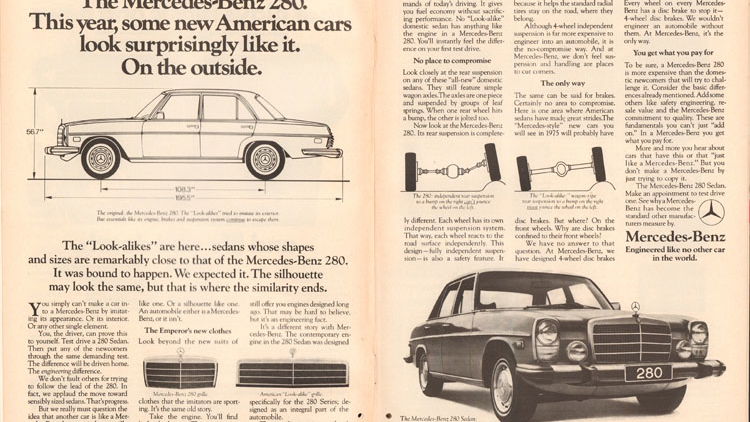
I’ve not had the pleasure of visiting England, or France, or Germany, or anywhere outside North America. That’s unfortunate, because I have car buds all around the world that I’d love to hang out with more than once a year, or worse, online in a Gran Turismo 6 lobby. That’s not to say I don’t know anything about the global car scene. It’s pretty much my job to have at least a few fingers on the international automotive pulse, albeit with an American perspective.
Which brings me to the crux of this article—why European cars, in their current form anyway, will never be a big hit in the United States.
Now, when I say European cars, I’m not just talking about the BMWs, Audis, Mercs and VeeDubs that we get. I’m also talking about the stuff we don’t get, and frankly that makes me a bit jealous at times. At least we’re finally getting the cool Focus RS, but I’d get a kick out of wheeling around in a Citroen C4 diesel. For a little while, anyway.
Sadly, my views place me among a minority of Americans. Since many CTzens don’t hail from the United States, let me tell you a bit about why we’re not terribly interested in European cars.
1. Government regulations
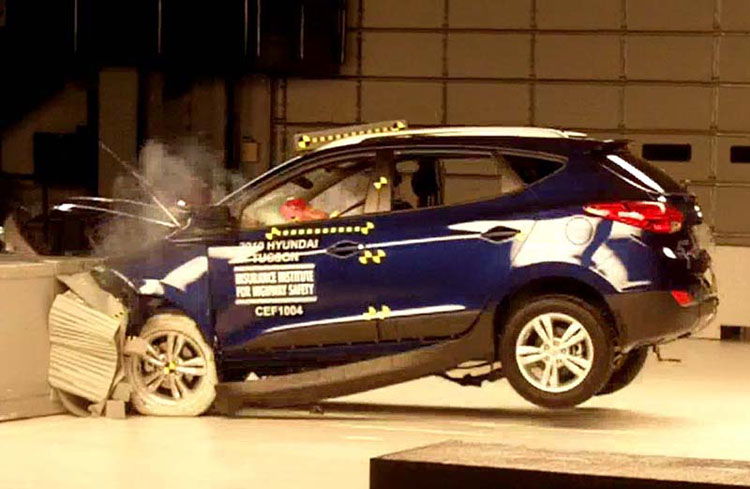
For starters, doing business in the United States isn’t that easy when it comes to cars. We have rigorous crash standards to meet that require all kinds of testing, and for many manufacturers it’s just not worth the effort. We also have different emission and economy standards to meet, the latter of which I find particularly amusing since there are no shortage of small diesel hatchbacks on the other side of the planet easily capable of topping 50mpg. Personally I feel they’re a better alternative to the batch of hybrid or all-electric vehicles currently being worshipped here in the States. But again, I’m the minority.
By comparison, my dad is positively giddy because his 2015 Chevrolet Silverado extended cab 4WD pickup truck gets 21mpg. Yeah, we’re talking about a 2500-pound car with 1.6 diesel versus a 5500-pound truck with a 5.3-litre V8, but still, 21 mpg is good fuel mileage to the average American. And this brings me to the next point.
2. We like our big vehicles
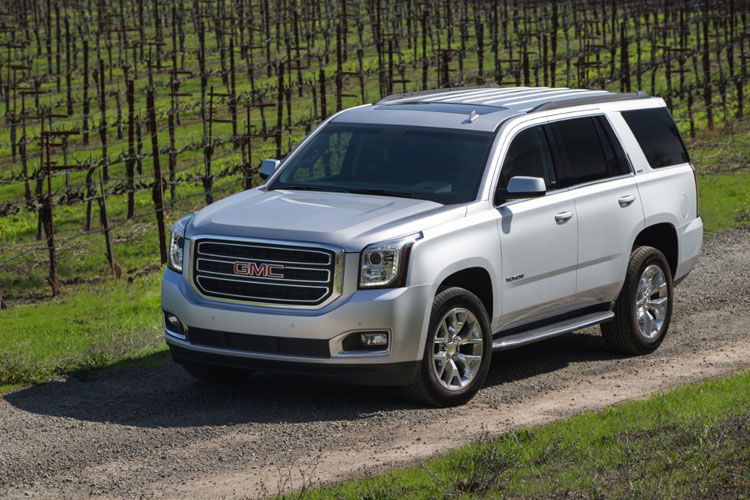
Overall, American cars are smaller and most definitely more buttoned down in the handling department than they used to be, and that’s good for enthusiasts. But most Americans still equate size with luxury and performance, while small cars are looked upon as basic or entry-level, no matter how awesome they are.
That’s why we never got cars like the Cosworth Escort, or the Lancia Delta Integrale, and it’s also why it took so long for the Focus RS to arrive. Never mind the amazing performance of these machines—in the eyes of most American car buyers they’re still just small, entry-level compact cars. And who’s going to pay $35,000 for a tiny car like that when you can buy a mid-size Chevrolet Traverse SUV or a V6 Dodge Charger for the same amount?
3. We like our power
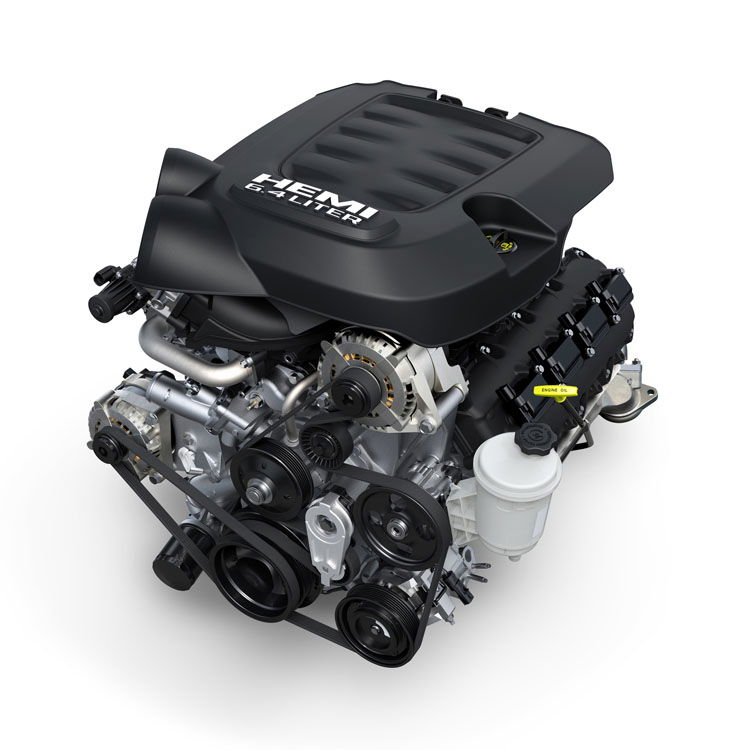
In a similar fashion, this is why we don’t have fleets of diesel hatchbacks. Through the 1970’s and 1980’s we didn’t have much choice but to accept the low-horsepower cars that were given to us, but they still had some hefty torque so they felt muscular, even if they were still taking 10 seconds to hit 60 mph. That’s why turbocharged cars like the SVO Mustang and even the Grand National weren’t big hits through the 1980s, despite their performance envelopes that equaled, or with the Grand National, exceeded their V8 counterparts.
And as long as petrol remains cheap, that’s the way things will stay in America. Even back in 2009 when our petrol prices topped $4 a gallon, many people kept right on trucking with their SUVs getting 13 mpg, paying $100 every couple days to fill the tank. And I know many of you are reading this and thinking that $4 is cheap, but that doesn’t matter to drivers who equate their success with the size of their vehicle. At least the whole ordeal was a wake-up call in America that fuel economy does matter, and small, efficient cars can also be nice, fun, functional vehicles. The vast majority of American buyers still weigh horsepower over efficiency though, and as long as that’s the case, we’ll never see the ultra-efficient diesels so common throughout Europe.
4. Expensive to own with limited support
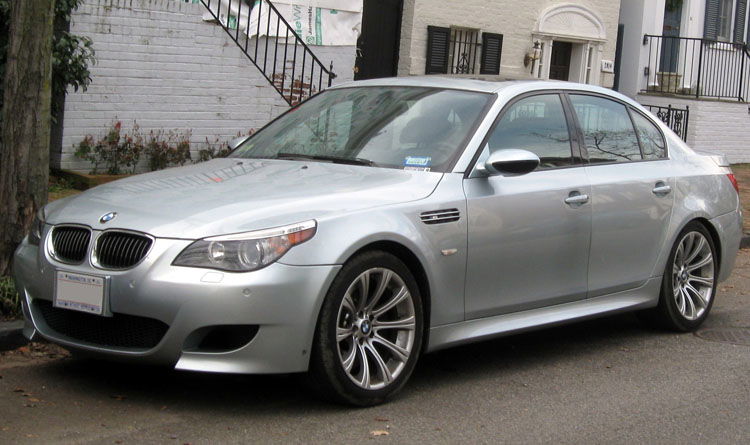
For the mainstream European cars we do get - Audi, BMW, Mercedes-Benz and Volkswagen - they do cost a rather tidy sum of money. Well, not so much with the VWs, but for most Americans looking at vehicles with price points over $50,000, their attention is still with luxury pickup trucks and SUVs. I know it sounds ridiculous to those who’ve not sampled such vehicles, but a brand new Ford F-150 Platinum Crew Cab easily seats five big adults, and it’s not exactly a barebones work truck. Packed with leather and all the modern technologies found in luxury cars, it’s a viable choice for an American family looking to spend $60,000 on a vehicle with good straight line performance, long-distance comfort, gobs of luxury options, four-wheel drive, and the ability to tow a small town.
Meanwhile, the same $60,000 buys a modest midsize E-class Merc, a nicely equipped Audi SQ5 crossover, or a well-optioned BMW X5 SUV. I’m not directly comparing an F-150 to these makes - completely different vehicles for different purposes. I’m just pointing out what American shoppers see - comparable luxury levels, strong straight-line performance, and though it’s a body-on-frame truck, there’s a surprising amount of refinement. Beyond that, the F-150 will fare significantly better in terms of depreciation. And F-150 owners can find parts and/or a Ford dealership in every American town. Outside of major cities, finding support for the German brands can be tough and repair costs are almost always much higher.
5. More bang for the buck
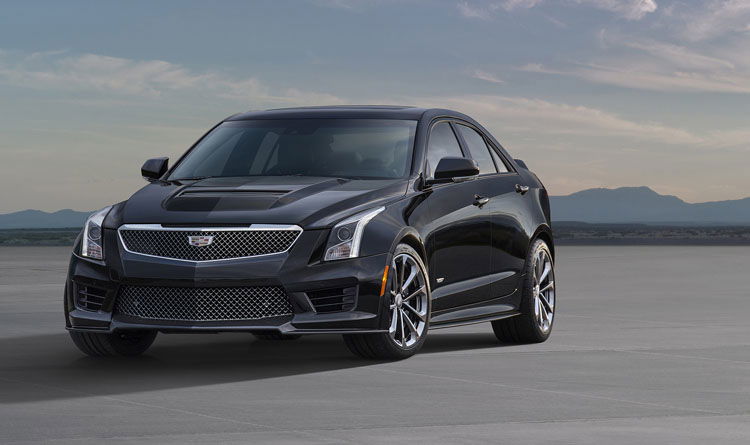
For those American buyers who do want performance in their practical automobiles, you’ve got the Dodge Charger SRT 392 sport sedan with 485bhp and an eight-speed auto for $50,000. If that’s too unrefined, the 464bhp Cadillac ATS-V sells for $60,000; it does 0-60 in under four seconds and matches the Germans for luxury and quality. To get comparable vehicles from Germany, you need to spend quite a bit more and get something with either an AMG or M badge. And those are just a couple examples.
I’m not saying cars are better or worse on either side of the pond. European designs and trends have certainly influenced American manufacturers, and I consider that a very good thing. But from an American perspective, the everyday European cars just don’t fit, and the high-end models just cost too much.
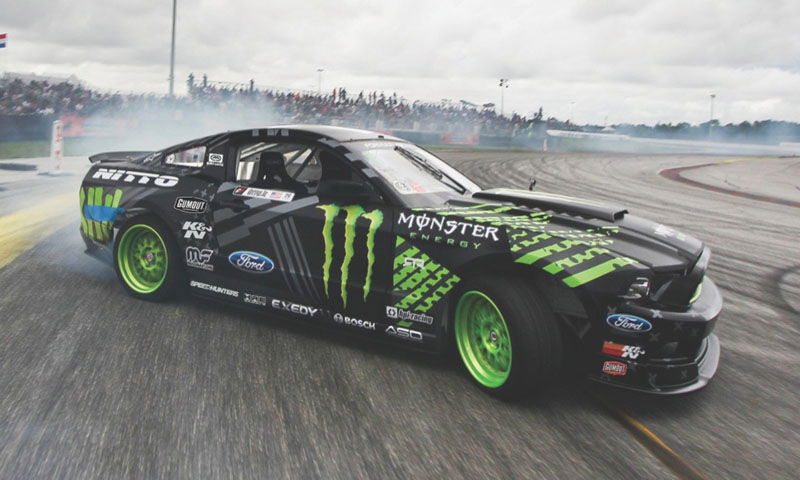







Comments
The comments are making my head hurt, mostly from Euro fanboys.
Exactly why I bought my 2 year old used 2013 Chrysler 300C with the 5.7 HEMI. It has more power, a 363 HP V8, more options and is bigger than a base BMW 3 series while being much cheaper to buy and to maintain while having more luxuries.
there is one simple reason why european cars are not big in america and it because MURICA
“You” like torque, not deliberaly Horesepower, want it to look sturdy and big, want it to do good millenage per galon, and a “everywere shop and parts”. I can only see only one thing, you like them becouse you produce them… although you buy oil from other countrys (and a several of things are implicit here) and use unecessary amounts of recourcers from earth on “dilaly drive” cars that for the sake of the nature in every other part of the (SAME) world is uneconomicaly and naturaly and viable. To clarify, i used “You” targeting most shoppers as explained on the article; i’m a car lover, i shure am, race cars included… but having a car it’s a matter o conscience nowdays (that every single soul seems to have one). I use bus (couse it’s the only thing we have in my town) and cylce during sunny days too, i’ts a choice. Oh … i’m also a owner of a WV Golf (could be an ‘74 Ford Maverick but it’s hard to find here) often used on track days, just so know.
I live in California, not in a major city, and I have no problem maintaining my BMW’s or my parents Mercedes. American cars are cheaper to own and insure, true, but in the end, you always get what you pay for. And a similarly equipped BMW X5/Mercedes ML/ any other European car will almost always have a higher resale value than an F150- because people are ok with paying more for a luxury SUV vs a ford truck- not entirely sure where you got that info that an F150 fares better in terms of depreciation
Cadillac has the same quality as a BMW, Mercedes & Audi? I don’t think so. That’s why Europeans don’t buy American cars as they’re badly made.
The hp figure-warriors are going nuts in the comments lol. You know, it is not entirely about ONE number, a car is a damn machine not a size of paper, you can’t judge solely on its specs the day it left the factory… It’s in the feel not the numbers :) and if anything peak torque and where in the rev range it is achieved is a far better indication of how quick a car is…
All these arguments about euro vs american cars…cant we just agree both sides make amazing cars?
I am not American or European, so I don’t have a patriotic bias. American cars look great , are cheaper and have big engines for the car they are in.
Euros are more expensive, look good but seam to be more boring these days since they all look the same, generally they put smaller engines in the cars but still put out as much power as bigger American engines. Performance euros are awesome and are generally better than American performance models.
Euros are more expensive outside if Europe. But in Europe I am assuming they would be more reasonably priced.
I can’t say I like euros more than Americans or vice versa, both regions have some awesome models I would love to own. And both have some terrible things I wouldn’t go near.
I hate when people say that European cars are better than American cars by comparing the worst American cars to the best European cars. Like obviously there are euro cars that are incredibly better than American cars in every way and then there are American cars that are better than euro cars in every way like I don’t really get why people have these arguments. You are comparing two very different cars when you say a V10 bmw is better than a V10 dodge. Just because they have the same number of cylinders or and American car has higher displacement doesn’t mean you can bash American cars like that. The thing that drives me the most crazy is when people argue about how a modern V8 AMG to a 1980 dodge like can you take your head out of your a$$ and realize that they intentionaly made these V8’s with low horse power because of the lack of petrol, these V8 “muscle cars” were not made to race. They were simply a V8 that American companies could sell and they could say it was still a V8, if they made all of these cars with I4’s no one would have a problem it’s just they wouldn’t sell as well. I love american and euro cars, and if euro guys could stop bashing American cars that can’t even compare to a modern euro car that would be very nice.
Pagination